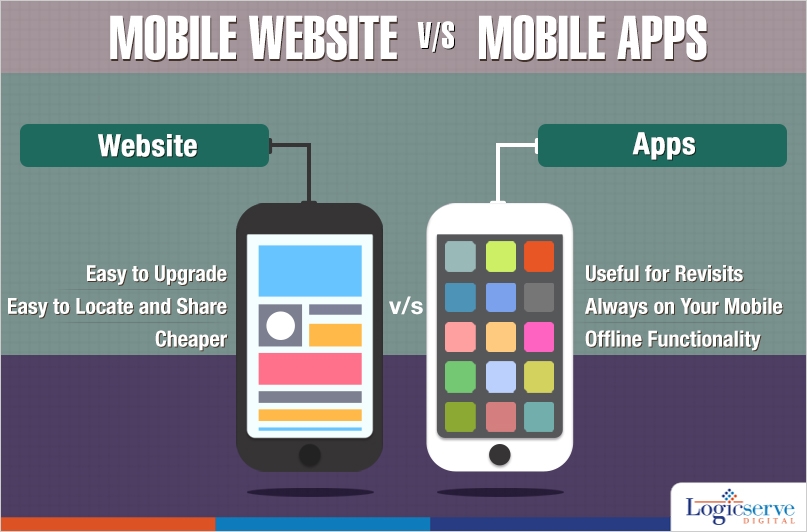More than half of visitors to the Web access it via a mobile device. Smartphones are outselling desktop PCs six-to-one. This underscores the need for businesses to cater to the vast mobile-wielding audience.
Mobile Websites
To make sure that potential and existing customers have a great browsing (and indeed, online shopping) experience, businesses must have a dedicated mobile website. You can either develop a different website entirely and host it at a different URL (think of the two New York Times websites: nytimes.com and mobile.nytimes.com) or you can go for responsive design which refers to a website design technology that results in websites that look good on different screen sizes by presenting their website content differently depending on the screen size or device on which you access the site.
Mobile websites certainly make far more sense than mobile apps.
Here are a few reasons that show why mobile websites make more sense than mobile apps:
- One Website Versus Multiple Apps
A single mobile website is all you need to cater to a variety of users browsing with their iPhones, iPads and Android-powered devices. On the other hand, you would need to design and develop (write code) separate apps for the separate mobile operating system platforms from Apple, Google, and Microsoft.
- Easy to Upgrade
How easy is it to upgrade a website versus upgrading apps whose code must be modified separately and after modification and testing, the ‘new versions’ of the apps will have to be pushed to the users who’ll need to download or ‘upgrade’ their apps? There is obviously no competition between the two. The mobile website is the clear winner here compared to the mobile app option.
- Easy to Locate and Share
With a mobile website, you can make it search engine friendly and customers will discover your website from search engine query results. It will be difficult to stand out in the clutter of a million apps which are there on both the Apple App Store and Google Play.
Not only are mobile websites easy to locate via search engines, they can be shared easily via social media as well. Like normal websites, you can integrate social media buttons (Facebook, Twitter, Google+, etc.) into your mobile websites that will let users tweet the pages they like or share on Facebook.
- A Mobile Website Is Also A Mobile App
If you want App-like functionality in your mobile website, it is possible to have some of that on the mobile website itself. Of course, you cannot get full-fledged App-like experience from a mobile website.
- Cheap
Perhaps quite as important for businesses, mobile website development is far cheaper than mobile app development. This is obvious as you only need one mobile website to cater to all mobile visitors whereas you will need at least two apps to cater to the Android and iPhone audience.
Mobile Apps
There are a small number of situations where mobile apps do make sense though. If you want to charge users money, then you should come up with an app as it’s easy to charge money for downloading apps.
Similarly, if you want to give offline functionality, then obviously you will need apps which will work offline once downloaded and installed on a mobile device.
If you need mobile gaming-like features which require a lot of processing or even access to the phone’s camera, gyros, or accelerometers and so on, then also dedicated apps make sense.
LogicSpeak:
The bottom-line is that for most needs and most businesses, a mobile website will do perfectly fine. It will be cost-effective and user-friendly too.
Previous Post: What every Affiliate marketer should know?




